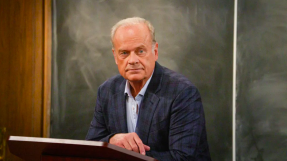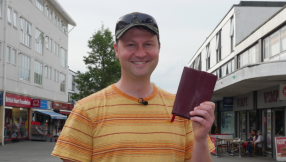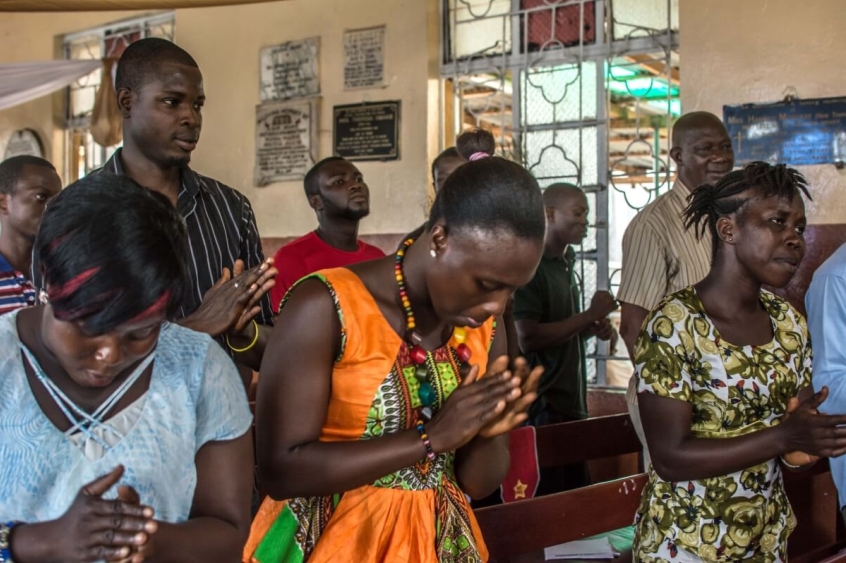
A fortnight ago, West Africa breathed a collective sigh of relief as the World Health Organisation declared that Liberia was officially Ebola-free, having gone 42 days without a new case.
The announcement signalled the long-awaited end of a two-year battle against the deadliest Ebola outbreak in history: one that devastated communities in Guinea, Liberia and Sierra Leone.
Nobody could have imagined that our joy would be so short-lived: hours later, officials announced a new Ebola death here in Sierra Leone.
Over 250 people are now in quarantine and one person is receiving treatment, as emergency measures come back into force. This a shattering turn of events for my country, which received the all-clear in early November 2015 after 4,000 people lost their lives to the virus.
But whatever lies ahead, I am quietly confident that Sierra Leone is much better equipped to cope this time around: while challenges remain, we have learnt many lessons since the outbreak began.
One key lesson is the need to recognise the vital and often sacrificial role played by local communities, civil society groups and faith leaders in the emergency response and subsequent recovery work.
This role has rightly been recognised by the House of Commons' International Development Committee (IDC). In a report published last week, the committee recommended that the UK's Department for International Development (DFID) "engage communities earlier in future outbreaks, especially through trusted local, tribal and faith leaders, established voluntary organisations and civil society".
The value of community engagement in humanitarian crises such as the Ebola epidemic was consistently emphasised that during the committee's inquiry process, including by interested parties such as Christian Aid.
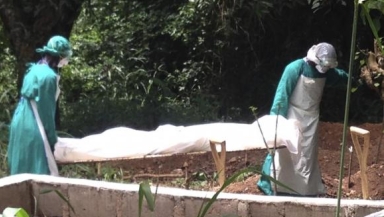
In our submission to the IDC, Christian Aid stressed that: "More involvement of communities at the beginning of the response would have reduced their fear of ambulances, protective suits and health facilities, and would have mitigated the effects of Ebola." This has certainly been my experience.
Soon after Ebola reached Sierra Leone, it became very clear that major factors in transmission included: denial, fear, lack of understanding and deeply embedded local customs, such as the burial rites that involve touching corpses that are highly contagious.
Religious and deeply ingrained traditional cultural beliefs permeate the very fabric of our society. In a country with a weak healthcare infrastructure (it had just two doctors and 17 nurses per 100,000 people before the outbreak), reliance on traditional healers remains strong in many quarters.
While many overseas agencies focused predominantly on clinical work in the outbreak's early days, for home-grown NGOs and civil society organisations, it was painfully apparent that the biggest battle was behavioural, social and cultural. We knew the response had to be supported in a way that made it locally owned and locally driven.
That's why Christian Aid in Sierra Leone worked with local partner organisations, whether it was equipping health teams, feeding quarantined families, caring for orphans or mobilising thousands of volunteers to give life-saving advice on infection prevention and control.
Our partners shared a common characteristic: they all had longstanding positions of influence and trust in the places where they worked. This was particularly the case for faith-based groups.
Sierra Leone is a deeply religious nation, roughly two thirds Muslim and one third Christian. Churches and mosques are rooted in and respected by communities, giving faith leaders a unique platform to create social and behaviour change: they understand local contexts and can empathise accordingly.
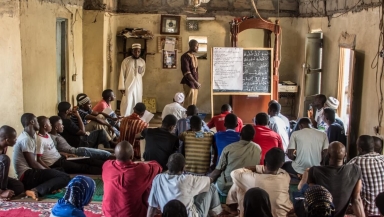
We saw their faith in action when we trained 1,000 religious leaders to promote safe practices, challenge Ebola myths and misinformation, speak out against stigmatisation of survivors, and provide psychosocial care to trauma-hit people.
Indeed, there is growing recognition that the religious and the secular must work in sync to advocate on global issues. One minister with whom we worked – Rev Christiana Sutton Koroma, Director of the Council of Churches in Sierra Leone – noted: "In every town you enter in Sierra Leone, you find a mosque or a church: they have a presence everywhere...religious leaders have a great constituency."
Faith leaders and grassroots groups have proved themselves crucial to the fight against Ebola. When faced with humanitarian crises, the international community must harness their potential as agents of sustainable change.
Having said this, their impact will never be fully realised while public spending on medical staff, clinics, equipment and ambulances remains inadequate. As last week's report notes, the "weak state of health systems" in Ebola-hit nations played a major role in the outbreak reaching an "unprecedented state".
This was certainly the case in Sierra Leone, where investment is desperately needed to strengthen health infrastructure.
One way to mobilise funds for healthcare services is to review the excessive tax breaks given to multinationals operating here. In 2012, Sierra Leone gave some £158m in tax exemptions to foreign investors: an astounding 10 times the national health budget that year. This money could have helped tackle the epidemic.
That's why Christian Aid is urging the UK government to help the Sierra Leone government resist pressure to grant such huge tax incentives, and to help it negotiate fairer tax arrangements with multinationals.
Not only would this move Sierra Leone closer to a future free of aid dependency, but it would also leave local organisations and faith leaders much better equipped to fight side-by-side with the international community, when the next humanitarian disaster strikes.
Jeanne Kamara is Country Manager for Christian Aid in Sierra Leone.










